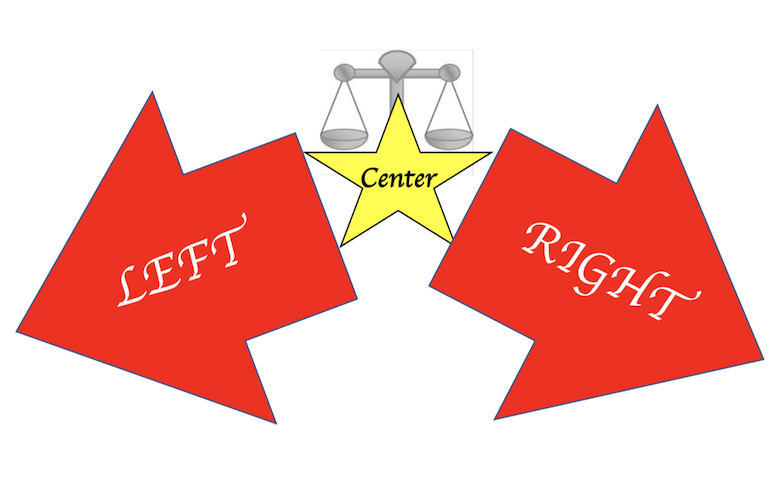
Centrism is a political position that takes a moderate approach to politics. It usually includes elements from both the left and right sides of a political spectrum. This view of politics promotes civil, unrestricted public dialogue. It acknowledges that people are often biased, aggressive, and tribal.
Balanced Approach to Tackling Political Issues
Centrists tend to downplay ideology and focus on pragmatic or “catchall” policy platforms. They try to appeal to a wide range of voters and maximize electoral support by adopting a middle-ground position on polarizing issues.
For example, the centrist UK Labour Party under Tony Blair moved towards a Third Way platform with liberal and conservative policies to appeal to left- and right-wing working-class voters. However, the party later shifted to the left under Ed Miliband and now has a social democratic stance with an anti-austerity agenda. Similarly, the Polish Civic Platform is described as a Christian democrat, centrist or progressive. However, it can also be described as pragmatic (as opposed to the national moral right-wing Law and Justice party, which is more xenophobic).
Embracing the Status Quo
Political centrists typically reject extremist views on both sides of the spectrum. They may support religious freedom and oppose abortion but criticize American nationalism or decry mass incarceration. Centrists downplay ideological appeals to promote policies that are pragmatic or “catchall.” This way, centrists like the No Labels party embrace the status quo, not as they think it should be. They may recognize faults in the current system but do not support radical changes in government structure, law, or general governance principles.
This position has spawned several political parties claiming to be centrist, including the French liberal movement Renaissance (LREM) of Emmanuel Macron, the president-elect of France, and Spain’s Citizens Party at the national level. However, polling suggests that many self-described centrists must find their top priorities met by either of these parties. This is perhaps partly because centrist pundits often present polarization as the primary problem and focus their solutions on civic dialogue, bipartisan compromise, and norm maintenance rather than political goals and policy.
Embracing Radical Change
Moderate centrism is a popular political viewpoint that advocates for a return to bi-partisanship, pragmatically focusing on issues that can be solved and rejecting ideological purity in favor of realistic moderation. It is a seemingly sensible solution to American culture’s debilitating hyper-partisan polarization. However, it is important to note that centrist politics does not merely endorse compromise but also accepts authoritarianism, repression, and racism. In this respect, it is closer to right populism than socialist democracy. Likewise, it often ignores or downplays the role of climate change as a significant threat that requires radical changes in society and the economy. This leaves a dangerous gap between rhetoric and reality. Nevertheless, centrists can positively contribute to American culture by challenging the status quo and advocating for incremental reforms. This will help reduce polarization and bring the country closer to the ideals of civic nationalism and patriotism as designed by the founding fathers.
Embracing Naive Ideas
The current political establishment, including Democrats and Republicans, is often guilty of embracing naive ideas that can cause major problems. They’ve launched wars on pretenses, made billions of dollars selling arms to the most repressive regimes on earth, eviscerated financial regulations leading to one of the worst economic crashes in history, and overseen soaring inequality within and between nations.
Electing Centrist senators won’t be easy, but it shouldn’t be impossible. Democrats and Republicans can gerrymander congressional districts to squelch incipient Centrist movements. Still, the state-wide election of four or more Centrists in swing states should encourage some defections from the Democratic and Republican parties.


